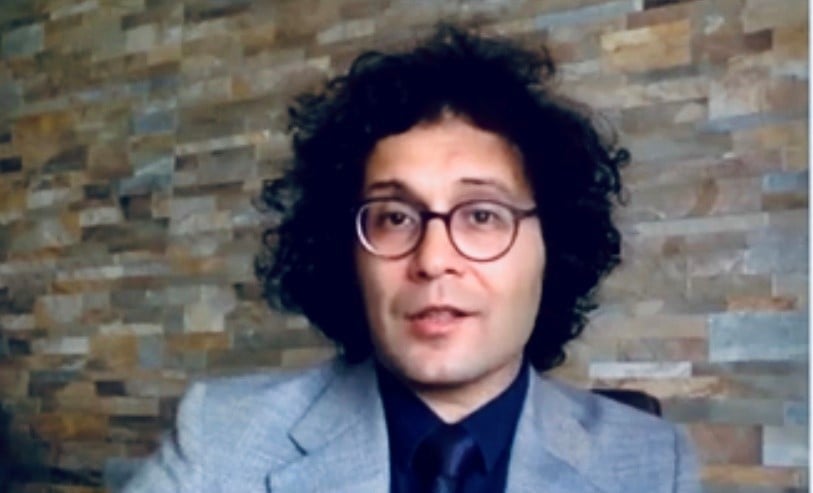Need Help?
Announcements
18 October 2021
Meet the Editors | Interview with Prof. Dr. Marwan El Ghoch—Editorial Board Member in Diseases

Thank you for accepting our invitation for the interview. This interview will have two parts, mainly regarding your research and editorial work. We believe your scientific experience would give some inspiration to young researchers and your editorial experience will have a great impact on the development of science.
Part I— Regarding your research work:
- Firstly, could you please introduce yourself?
I earned my degree in Medicine and Surgery from the Alma Mater Studiorum – University of Bologna (Italy), and a degree in Clinical Nutrition from the School of Food Science – the University of Modena and Reggio Emilia (Italy). From 2005 until now, I have been practicing in the field of obesity and eating disorders in several settings (inpatient, day hospital, and outpatient) in Northern Italy (mainly the Emilia Romagna and Veneto regions). Moreover, I am a Full Professor and Head of the Department of Nutrition and Dietetics at Beirut Arab University (Lebanon). I was recently qualified as a European Clinical Fellow by the European Association for the Study of Obesity (EASO).
- What got you interested in scientific research in the first place?
My interest is specifically in clinical research, which primarily aims to fill the gaps that clinicians may face during their clinical practice and to improve treatment outcomes.
- Can you briefly describe your research and summarize it in several keywords?
My current research is focused on body composition, energy expenditure, physical activity, and health-related quality of life, as well as treatment outcomes in clinical settings for eating disorders and obesity.
- Can you share your career development story briefly? For example, what cases have influenced you the most?
Since I have always been fascinated by the study of body composition models in humans, the last decade of my career can be distinguished by two main parts: the first was the research that I conducted on body composition in patients with anorexia nervosa, which extensively clarified several aspects of the changes in body fat, skeletal muscle and bone mass in this population. The second was the research I conducted which led to a better understanding of the new phenotype termed “sarcopenic obesity”, especially its impact on attrition, weight loss, and maintenance outcomes during obesity management programs.
- As a researcher in obesity, what valuable suggestions would you like to share with young scholars in terms of research topic selection?
On a general note, I discourage young researchers from publishing only to increase their number of publications, or to seek promotion, etc. I advise them to focus on a few topics and think about how to produce results with a relevant scientific impact and clinical implication. Specifically, in the field of obesity, we still need to study and understand the obstacles behind the lack of weight-loss maintenance in the long term (i.e., after three to five years) regardless of the nature of the treatment, which occurs in the majority of patients with obesity.
- What do you think are the most important characteristics of researchers? Do you have any suggestions for young researchers?
A successful investigator has to consider research as a lifestyle, to which they dedicate a lot of time, at least in the initial stages, and this needs to be driven by high motivation and passion. In addition, accuracy and scientific honesty are two key elements that are rewarding in the long term.
Part II—Regarding your editorial work:
- What attracted you to join the academic editorial team of Diseases?
I think that during the career of any researcher at a certain point they should join the academic editorial team of a reputable journal released by a prestigious publisher, and this was what attracted me to join Diseases as an academic editor.
- What do you think of the future of our journal Diseases?
I am quite convinced that our journal is on the right track, always growing with more and more success, as with other journals released by MDPI.
- What have you gained from editorial work?
The role of an academic editor is important and has a certain responsibility towards the scientific community. The editorial work taught me a lot about how things happen on the other side, as opposed to what authors usually see. Moreover, it keeps me regularly exposed to the most recent research conducted in my field.
- How do you improve your academic writing ability?
Initially, you should find a tough mentor who teaches you the art. After that, the only way to improve your academic writing ability is to write, write and write daily, especially in the early stages of your career. Last but not least, take into consideration and follow the peer review comments that you receive on your manuscripts, considering them as an opportunity to improve your manuscript in general, which automatically positively impacts your writing ability.
- What do you think about the development of Open Access in the publishing field?
I think it is the future. Simply put, science should be available to all, regardless of any conditions.
- How do you respond to Open Access skeptics?
Firstly, it is widely known that Open Access science articles are read and cited more often than articles available only to subscribers, and this is one of the most important goals that any researcher seeks. Secondly, I disagree with those who say that it is easier to publish in an Open Access journal. For instance, in my long experience with MDPI as an author, I only have a 40% acceptance rate among all the articles that I have submitted so far. That is to say, it is not that easy to publish in MDPI journals.




